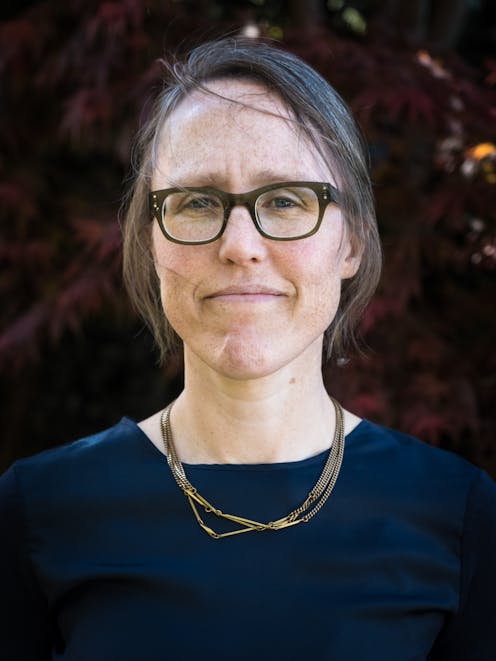
Research helps build a better world. It also ignites debate, inspires new ideas, excites and entertains. That’s why, as editors at The Conversation, we love what we do. Our content, which recently received its billionth read, draws on the latest and highest quality research to tell stories that are now delivered to a huge, global audience.
And it’s truly amazing what we discover along the way.
Since The Conversation UK launched in May 2013, we have collaborated with thousands of academics to ensure their expertise can be enjoyed and understood by as broad a readership as possible. And we are grateful to every one of them.
Once a year, however, we also celebrate a special author who we believe has taken this mission to exceptional heights. And the Professor Sir Paul Curran Award for excellence in academic communication does just that. Named after our patron – President of City, University of London and founding Chair of The Conversation UK’s governing Board of Trustees – the award is now in its third year and it is my pleasure to announce the 2021 winner.
Dr Caitjan Gainty, a Senior Lecturer in the History of Science, Technology & Medicine at King’s College London, embodies The Conversation’s mission. Her articles on the weird history of resuscitation, how snake oil got a bad name, vaccine hesitancy and why vaccines alone aren’t enough to eradicate a virus meld research with accessible, informative and compelling storytelling, bringing something truly different to the media landscape.
Professor Sir Paul Curran said: “I would like to congratulate Caitjan on winning this year’s award and I was particularly impressed by her topical article on vaccine hesitancy. The articles she has written, along with those by the others shortlisted, are wonderful illustrations of the unique platform and the important public insights The Conversation can provide.”
‘One of the greatest honours…’
Selected as the winner from an outstanding shortlist by the editorial team and The Conversation’s Editorial Board, Caitjan will be awarded with the twin-handled silver cup at a forthcoming event. On hearing the news, delivered over the phone due to COVID restrictions by The Conversation’s health editor, Clint Witchalls, Gainty said:
I am thrilled to have been chosen as the recipient of this award, which I count as one of the greatest honours of my career thus far. I believe strongly in The Conversation’s credo: to make academic work accessible beyond the confines of the university so that it may circulate far and wide. For me, writing for The Conversation has also brought both the joy of sharing material that I am passionate about and the great satisfaction of having (hopefully) contributed something worthwhile to the larger conversations that we all as a public have about health and healthcare.
I thank the Editorial Board for choosing me, and I cannot believe my good fortune that I have had the chance to work with Clint Witchalls, who is not only a very thoughtful editor but also a prolific source of topics, each somehow more squarely located at the intersection of the delightfully eccentric and the historically significant than the one before.
Professor Dinah Birch, Chair of the Editorial Board, said: ‘We were delighted by the quality of the writing submitted for consideration for this year’s Sir Paul Curran Award. Caitjan Gainty’s thoughtful and engaging articles made her a truly outstanding candidate, but the contributions of the other shortlisted nominees were also hugely impressive. Together, these academics amply demonstrate the growing strength of the work of The Conversation.’
In fact, 2021’s shortlist was so strong that the judges agreed the authors should all be “Highly Commended” for their outstanding contributions. They are:
Harry Cliff, University of Cambridge, for his exceptional and lucid explainers on complex physics.
Read more: Evidence of brand new physics at Cern? Why we're cautiously optimistic about our new findings
Mark Maslin, UCL, for insightful, deeply interesting and informative writing on climate change.
Read more: Five things you need to know about the Glasgow Climate Pact
Christian Yates, University of Bath, for his contribution to the wider understanding of the COVID-19 pandemic.
Read more: COVID: why are people testing positive on lateral flow tests then negative on PCR?
Nicole Westmarland, Stephen Burrell and Sandy Ruxton, Durham University, for their excellent collaboration responding to issues raised by Sarah Everard’s murder.
Read more: Sarah Everard, police culture and the 'masculinised' workplaces we can all help change
Our world has faced a whole array of new challenges over the last year – and will doubtless face many more as we begin 2022. But research can bring us the solutions. Gainty and The Conversation’s many other authors, working with our team of brilliant editors, are playing a key role in sharing this knowledge – and I am inspired by them all. I hope you are too.
This article was originally published on The Conversation. Read the original article.







